#SO6
Text

74 notes
·
View notes
Text
The Enneagram 6 Subtypes Showcased by Characters in Attack on Titan


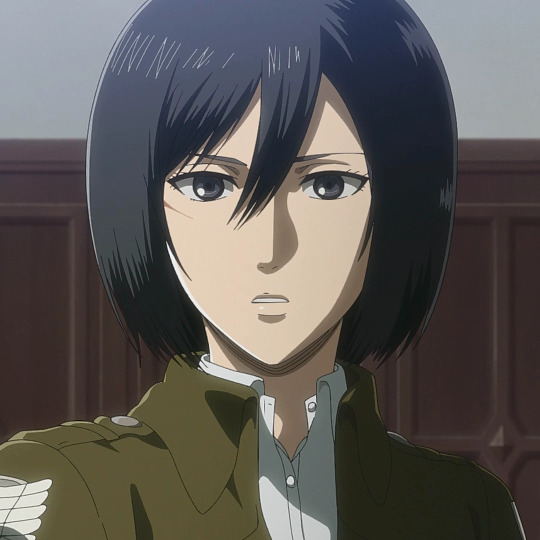
Armin Arlert: Self-preservation Six
This subtype is warm and friendly. They disguise their fear by being soft and kind, and not aggressive. They feel fear as separation anxiety and try to attract strong protectors and allies to feel more protected. They are actively fearful and often “phobic,” running away from danger (flight, not fight). They experience the most doubt and uncertainty, and trust others more than themselves. They are the most fearful of being angry, and they hesitate the most and ask the most questions. But they don’t answer any.
Eren Yeager: Sexual Six
Sexual Sixes express fear by going against fear—by becoming strong and intimidating. Trusting themselves more than others, these Sixes have the inner programming that when you are afraid, the best defense is a good offense. They take on a powerful stance, both in what they do and how they look, as a way of holding the enemy at a distance. Their anxiety is allayed through skill and readiness in the face of an attack.
Mikasa Ackerman: Social Six
This subtype copes with fear by finding a good authority. They think the way to be safe is to follow the rules of their chosen authority, whether a person, a system, or an ideology. They tend to be dutiful, legalistic, intellectual, responsible, and efficient, and they rely on following guidelines or reference points to feel secure. For them, uncertainty and ambiguity equal anxiety. They display a mixture of “phobic” (fearful) and “counterphobic” (confronting fear with strength) behaviors. They see the world in terms of black and white, rather than gray.
Descriptions written by Beatrice Chestnut
9 notes
·
View notes
Text

Posting this a day late but happy 1st anniversary Star Ocean 6!
It's a game that means a lot to me, and through which I have met many amazing and talented people. Thank you for a really special year and here's to many more~
9 notes
·
View notes
Text
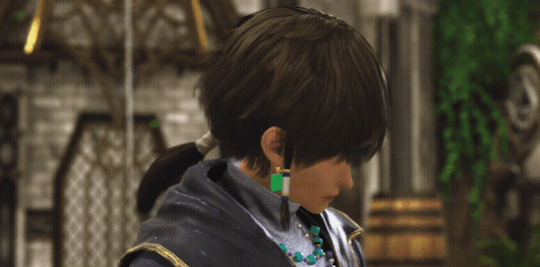
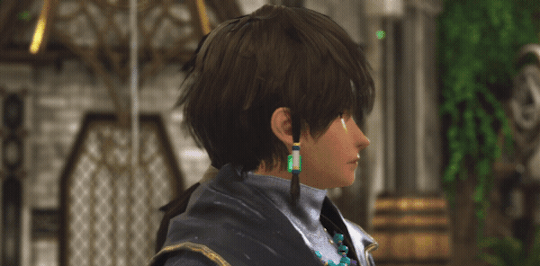
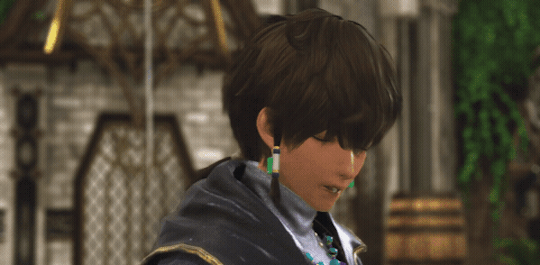
#star ocean#star ocean 6#SO6#albaird#so6edit#staroceanedit#my stuff*#i have work in the morning#why am i up so late making things??#I forgot how awkward their mouths looked in this game
3 notes
·
View notes
Text
Subtype Trait Structures: so6
Fear is chronic in the social E6. Fear of what? Fear of life, rejection, anger, conflict, shame, humiliation, to manifest, to be. The "mundification," the encounter with the environment, is a movement plagued by inhibitory episodes. The environment becomes annihilating, alienating.
Alienation
The “fearful” personality of social anchoring howls: “I get out of myself, my desires and needs, to capture your expectations,” “I focus on what you want from me,” and “I become what you expect from me.”
In short, “I am you, I am what you have to be. I become alien to myself and find you adapting, normalizing me and adjusting to what the world expects of me.” One participant shared these introjected messages: “Never be like your father.” “It was one of the phrases that my mother repeated to me during my childhood. I gave up the father to earn her gaze and her approval.” Very normative and demanding, her love was conditional: “If you behave badly I won't love you,” “be obedient to your mother.” The list of introjects pointing in the same direction would be endless. “I remember as a constant the environment of judicious tension and little acceptance of my mother towards my father. In this text I lost myself, I was devoured. Today is the day I remember my father as a character that is not entirely real, a fictional character, like in a story.”
Personal power is relegated to adherence to the norm and submission to authority. The annihilation of the vital permission to decide from one's own sovereignty culminates in the fear of freedom. He renounces the instinctive in the face of lofty ideals, in an “exit from himself” to become a “foreigner” of himself.
The Everyday
Let us point out at the outset a contradictory global tone where either an obsessive rigidity appears, or an alternation of order and relatively precise management with the chaotic.
Anxiety and doubtful rumination. The turbulent anxiety, restlessness, alertness is omnipresent in everyday life. Do not trust the course of events: some catastrophic event will happen. Chronic doubt is added to this paranoid ideation, since the decision does not spring from self-listening, from the connection with the intimate space, but from the anxious question of what is the correct option.
There is a lack of permission to explore, to make mistakes (natural learning process: trial and error). Inhibition due to fear of not complying with what is expected generates chronic rumination.
Chronophobia
Time is experienced as a persecutory presence. The “materiality,” the daily issues, are experienced with little lightness. The practical aspects, the economics, the food, come into friction with lofty ideals, and entail an internal experience of time covered in anguish. To arrive, not to arrive, how to arrive... Time management is conflictive, lacking in fluency. The clocks become heartbeats of demand.
Retentivity
Expenditure is often conflictive, with guilt and a propensity for austerity, sobriety, and moderation, from messages in education and vital attitudes captured in the family atmosphere. Retentivity is a security handle.
This position is reinforced by the focus on the imperishable. We observe an enormous difference between the habits associated with the worldly and with the elevated; between the fleeting, secondary and superfluous, and the ideal. Many of the allowed expenses are guaranteed to be “excellent” or durable: books, studies, travel, music, art, family needs, obligations, and work.
In one of the meetings, a mother commented that she did not allow her son to go on the graduation trip. He was the only one in her class who stayed home, despite being one of the best academically. “It seemed to me a superfluous expense for his thirteen years. And he had not yet done any special merit, beyond his obligation.”
Metaphysical Attitude and Taboo of Egoism
A “metaphysical” varnish, together with the propensity for sobriety, gradually forges a chronic attitude of austerity that results in daily renunciations.
In many cases a blockage of permission appears: the absence of the right to “give oneself” or, at least, clear difficulties, in a clear collision between “ascetic ideals” and aspects considered superficial, banal.
The image, food (sometimes verging on carelessness, if it is not for the people close to them) and other daily material aspects are placed on a relegated, devalued, or ignored rung.
Norm and Mimicry
A certain adaptability and mimicry in daily habits to related groups or in intimate bonds makes their customs more flexible, beyond maintaining the tone of characteristic austerity and sobriety.
A colleague admits: “I'm never in the habit of having a beer, olives, or wine for pleasure when I get home from work. It seems frivolous to me. I just feel like I don't need it. However, when I am in a bar with a group of friends or colleagues, from time to time I make the effort and go ahead and invite them. Not as a reason to celebrate something, but under the fear of rejection, of not being accepted or loved. Or to adapt to the customs of that group.”
This metaphysics in customs, this “asceticism” that greatly idealizes certain values, dissociating them from the mundane, ends up excluding or minimizing the enjoyment of everyday life. Thus, there is a “freezing” of one's own needs, because they are considered capricious or frivolous, and due to the absence of law, which penalizes banal expenses. The result is automation, a cold austerity, and a rigid and forced sobriety.
There are family messages of renunciation and systemic aspects in which the death of loved ones and dark unconscious links imply dead experiences.
There is also a curious difference between the attitude of sober and self-sacrificing, and generous behaviors that lead to resignations (especially in intimate relationships).
There is an imbalance between the “heroic” overexertion, the energy expenditure, and the gratifications received and accepted, digested. Underlies an affective desert, an emotional distance, and a chronic value dissatisfaction.
The castled Sisyphus, in the titanic wear of him, strives endlessly for ideals of family protection and for Dulcineas. A post-paternal or maternal unfolding varnishes some inhibited love and dedication from the heart.
Rigidity
In the field of power, a series of chronic attitudes can be seen, both with regard to external and internal aspects. In an internal world with oversized evaluative and normative aspects, the posture is one of vital rigidity, with a lack of spontaneity and natural expressiveness, as well as rigor and commitment to measure.
Uniformity and Uniforms
There is in the social E6 a secret fascination with the supreme, total force. Totems of united voices, uniformed and uniform steps, a unified ideal. Uniformity of criteria. Without fissures, without lacerating doubts. Certainty with the value of faith.
Omnipotence and Impotence
The distressing insecurity of this character and its connection with the radical fragility of one's position in the universe generate sudden movements from powerlessness to omnipotence. The shift of power towards strong leaders, lofty ideals, totems, and concepts is generating a co-participation covered in the search for omnipotence and rebellion against vulnerability.
“It is important for me to have a leader to follow and also that I like power, being close to people who have power, now I am close to two people I admire, Dr. Claudio Naranjo and Dr. Fernando Flores. One is in Being and the other in Doing, both seem brilliant to me, they are geniuses and I enjoy being close to them. I realize that I have a facility for approaching people who have power. There I do not doubt, I am not afraid; on the contrary: it gives me security to believe that I have those pillars.”
The social E6, due to its hypersensitivity to possible rejections, comes into conflict when expressing itself freely. He is afraid of attracting attention in a way that could be embarrassing, reprehensible, or conflictive for the group or the leaders (bosses, teachers...).
The episodes of invasions where individuality was castrated are repeated in the stories, in the family group, the church, the school, and in social situations where freedom of expression was abusively compressed.
A high moral load and demand transfers personal energy and power to adaptation to the environment. The affective and relational deficiencies have been compensated with adaptive postures. The social E6 exercises control as a vigilant attitude: It sets in motion its radar, its “lookout,” hunting and capturing whatever rules of operation are in force.
The high presence of “oughtisms,” of internalized demands, the attitude of adherence to external regulations, implies submission towards that “other” (authority, group, or totemic ideal) that displaces the gravitational center of the person, who suffers a mismatch, a misalignment.
One of the participants in the meeting comments: “At the time when I worked in a major consulting multinational, my fall into a pit of personal crisis, rather than professional, was recurrent. The strict rules of behavior and image, me clad in impeccable suits, obedience to the directives of superiors and the panic of making mistakes in decision making made me repeatedly ask myself: “Who am I? What do I do here?” I had no answer. I felt totally annihilated as a human being. Then came the professional crisis; no matter how interesting the projects were, I was not a person.”
The displacement of one's own strength towards people or groups magnetized by certainty, protection, inclusion, and belonging, calms the underlying anguish. We can thus observe behaviors of absolute fidelity to the company, the team, the tribe, the leader, the boss. From this position emerges the obsessive, exhaustive compliance, the demand, and the inhibition of critical attitudes. The suppression of rebellion also appears, in the form of self-invalidation, hostility directed against oneself, etc.
The Omnipresence of Guilt and The Annihilating Guilt
Guilt occupies an essential place in the daily life of this character. It is a primal, mythical, religious fault. In many of the shared cases, the ecclesiastical factor has played a major role. The severe gaze of the god of men. Annihilating gaze, omniscient and almighty, that executes eternal sentences.
Raskolnikov Syndrome
Guilt has three times: a preliminary (ruminating over possibilities in the loop of indecision), the leap into the abyss of action, and a corollary where expiation joins rumination.
What we could call the “Raskólnikov syndrome” (the protagonist of Crime and Punishment) takes place, with his fearful search for punishment for “crimes” committed or imagined, which is a source of profound suffering.
In a vertical energetic displacement, this mental character, which massively rationalizes conflicts, raises the energy to a world of abstractions.
Accusation
Indictment for the elections, for what could have been improved, achieved. Accusation for what was not. Through innumerable projections and identification with the aggressor, or unfiltered assumption of external judgments, he lives besieged by persecuting eyes. The shrinkage is chronic.
Guilt Addiction
A fundamental question is the management of the suffering of guilt. Guilt sensed, felt, and thought. From pre-occupation to post-occupation.
Time endlessly rotates in circles. Anguish and regret prior to any decision. The pressure, the weight of getting it right, of doing the right thing. Anguish and regret at the moment of decision.
Paralysis, compulsive acting, forced action. The jailer of conscience appears: subsequent rumination sprouts. The terrible weight of responsibility invites, on numerous occasions, early punishment.
The social E6 not only pays a price for the loss of the right to be, to express one's own strength, but the fulfillment of the desire, if it occurs, entails a degree of suffering.
Guilt and Over-conscience
The inner conscience is not built as a silent witness but is a jailer. It ceased to be consciousness to become “over-consciousness.” The guilt is installed not only because it does not avoid undue impulses, but because it does not hit the right thing, which is absolutely due.
Oversized awareness entails an excess of responsibility, or rather, an excess of “ability” to respond to external expectations, whether explicit or implicit, visible, or imagined.
The Fear to Freedom
The fear of the exercise of freedom, the assumption of one's own criteria, the legitimate use of healthy aggression, and expressive self-assertion carries regret. With the norm not only internalized but embedded, any spontaneous act of dissent becomes a terrible transgression.
The eye of God and the eyes of the human gods rest on the weight of history and mythical time (the fall from paradise due to original disobedience), to which is added the autobiographical, emotional time of the individual, full of slogans, and coercive scenes.
Feared and avoided, freedom constitutes one of the main taboos. Since disobedience implies a probable exclusion, it is invested with a radical anguish.
In most cases, a continuum of concealment is observed, a “curtain,” of neutrality in the face of the threat of freedom, with all its possibilities. In this existential invisibility, conformism is systematic. It is safer to camouflage yourself in the group, in abstraction, in the dogma of faith, in the leaders.
Primal insecurity and uncertainty. This character doubts himself and others. He suffers from the Cartesian syndrome of the evil genius, “paranoid” creation of a mind powerfully questioning both its perceptions and reality itself.
Then, either he plunges into the very void of questioning, persistent doubt, and lack of trust and faith, or he eagerly launches into “shortcuts” (in the form of overvalued and secretly judged ideals, dogmas, and leadership) of some prefixed rails.
Sexuality and The Uninhabited Body
His is an uninhabited, alienated, disidentified body, where an energetic displacement generates devitalization, rigidity, physical, and psychic tension.
This alienation implies a distance from corporeal reality, a focus on the mental and a disconnection from sensations, with the consequent unconsciousness of bodily experiences.
Thus, the body is experienced as something dissociated: an energetic entity that emits signals that are more or less pleasant, that suffers symptoms, that is sometimes heavy and generally strange, expressing a torrent of incomprehensible, and even threatening information.
Rejected Sensation
Different people report messages and maternal attitudes of deep rejection of sexuality. Explicit comments, faces of disgust, or more subtle attitudes, where the mere fact of having been conceived was already associated with a dark, sinful trance. At the origin, the shadows.
“I experienced a rebirth: at my birth I felt in my body my mother's rejection for not having been born a boy. It seems to me that this distanced me from her as a child, and I only came to understand it a year ago.”
This is how the enervated, contractured bodies appear, displaying robotic movements, controlled by a stroke of control by an ideal, rationalized self.
These stressed bodies, uninhabited by desire, walk on rails embedded in the codes of duty. Before the obligation that the devotion.
These de-eroticized bodies walk devitalized or are nailed to rigid stakes so as not to escape the control of impulses and bodily sensations. They roam the space with “neutral” faces, like constrained automatons.
They avoid the energetic charge, the vital excitement (placing mufflers or mental distractors) and wander aimlessly, having lost the compass of their desire. Adapted to the environment, subjected to the ideal of austerity, they disperse in circuits of hyperactivity. Thus, an existence marked by the deactivation of enjoyment is being drawn.
From the background emerge the mythical primordial punishments, as well as a childhood maturation full of “scythes”: cleavers of pleasure: from play to the enjoyment of sucking, crawling, pissing, shitting... exploring.
Civilizing laws are imposed on the legitimate assumption of pleasure, with praise for suffering, the compulsion to sacrifice, the ideal of work and a life developed with the sweat of the brow.
Propensity to Ideals and Psychic Refuges
The idealistic orientation of this character gives his reality a quasi-religious theoretical quality. Deficit mothering, together with an effectively absent father (due to excessive normativity or due to emotional and physical absence), as well as the omnipresence of ideals and expectations charged with mandate, weave an absence of self, an internal emptiness that is connected with a primordial, radical insecurity. The mental refuge becomes a safe hiding place, a handle against that depth of helplessness.
“My father sexually abused me, my mother did not defend me. I didn't tell mom about dad because she was afraid of him and because he threatened to hurt her if I talked. It was many years of this, also my dad went on trips a lot, a lot of absence, and when he was there, there was a lot of aggressiveness, hitting, scolding, and my mom did nothing. It's like having mom absent or perceiving her as weak, and this further distanced me from her. Being the judge that I am, I wanted to behave, as if that would take away my dad's impulses. On the other hand, I greatly admired him for his intelligence. There was a lot of confusion in my affections, especially in my adolescence.”
The “disenchanted forest.” The maternal affective rootlessness and paternal absence are filled with ideals and the values of the sense of duty, obedience to the rules of the social game, and compliance with the norm.
By being deprived of the delight and pleasant management of the basic issues of daily life, it loses its energetic and affective link with the vital flow. This loss of magnetism, this “exit” from the river of life, of materiality, of the vital body, devitalizes him and positions him in existential austerity, tinged with a lacking void, made of desert sand, resigned, resignation assumed.
This position implies emotional distance, disaffection, and derotation. A deficit of affective and pleasurable attachment that causes routinization. In short, these quixotic walkers, obsessed with windmills, do not dialogue with the Sanchos, they cannot even see them (or learn from them). A dissociation is configured without any bridge that gives access, from the shore of ideals, to the basic delights of everyday life.
Colonized Childhood
In autobiographies, the maturing journey is full of blows to creativity. The abuses of power, where the adult is appropriating the children's space, gradually impose correction, over-adaptation, domestication. They are “killing” individuation and difference.
Schools full of guilt messages and dictatorial behaviors are sealing the thirst for exploration and natural expression.
The Distortion of Consciousness
Consciousness, a beautiful beacon of lucidity, discovery, and illumination, stops exercising its loving contemplative observation to become a severe court that exerts a suffocating pressure of selection and filter. It becomes contaminated by the cascades of negative messages, which become introjects, and it becomes an agent of self-persecution.
Choices are not rooted in personal power, in the genuine force of need and desire. First there is a castration, a withering of the possibilities that life offers, because the options are reduced: you have to choose what is appropriate, what is due.
The inner struggle looms. The taboo of selfishness, with its undercurrent of self-loathing, inevitably leads to pain and loneliness. The “loss of the soul,” and the associated emptiness, lead to a desperate embrace of reason, duty, the God who is in Heaven, who offers a refuge in the desert of ideas.
The foundations of self-confidence are weakening, destroying the very essence of the supreme will, which resides in faith (in one's own perception, one's own criteria, intuition). In short, self-invalidation and inner enmity generate huge cracks in the bridges that connect you to life.
Source: PDB Wiki
#personality theory#personality types#typology#enneagram#enneagram subtypes#instinctual variants#enneagram 6#type 6#6w5#6w7#so6#intp#istp
14 notes
·
View notes
Text
[Oo-my-bow...???]
Can't really play it myself so I just watched a playthrough, these two grew onto me a lot!!!

11 notes
·
View notes
Text
NOOOO I WAS WAITING FOR THIS TO HAPPEN THE ENTIRE FIRST HALF OF THE BOOK I AM IN SHAMBLES MY GOD NOT THE MISTAKEN IDENTITY KISS I AM GOING TO EAT A GODDAMN BROOM HANDLE INCLUDED

#sunny reads#crooked kingdom#so6#crooked kingdom spoilers#six of crows spoilers#i feel delirious putting my lowercase organizational tags here like absolutely ludicrous#literally losing my mind. i am losing my gd mind
3 notes
·
View notes
Text
💕 Hyde x Raymond 💕

4 notes
·
View notes
Text
STAR OCEAN THE DIVINE FORCE is Now Available
STAR OCEAN THE DIVINE FORCE is Now Available
SQUARE ENIX has announced that STAR OCEAN THE DIVINE FORCE is now officially available. You can get the game for PS4, PS5, Xbox One, Xbox Series X|S and/or PC via Steam. Feel free to check out the brand new launch trailer down below and read a little bit about the game from the latest press release. Also if you’re interested, you can find our impressions article over here. A full review of STAR…

View On WordPress
#PS4#PS5#SO6#Square Enix#Star Ocean#Star Ocean The Divine Force#Steam#tri-Ace#Xbox One#Xbox Series X|S
2 notes
·
View notes
Photo

#スターオーシャン6 #starocean6 #so6 いよいよcmがテレビでも放送開始だな! すげぇ楽しみだわ! 体験版はps5で数時間やったが so4と5の良さを掛け合わせたバトルシステムは最高の出来 ただフレームレート問題だよなぁ 結構カクつきがあったから製品版で治ってればいいよな! 発売日は今月27日! アクションRPG好きなら注目やで! 体験版もあるからやるといいよ! ---- #followforfollowback #instalike #followme #likeme #ゲーム #ゲーム好きな人と繋がりたい #ゲーム好き #ゲーム実況者好きと繋がりたい #ゲーム好きと繋がりたい #ゲーム女子 #ゲーム男子 #ゲーム実況者さんと繋がりたい #フォローミー #いいね返し #いいねした人全員フォローする #フォロー返し #新作ゲーム https://www.instagram.com/p/CjunySeL9Fb/?igshid=NGJjMDIxMWI=
#スターオーシャン6#starocean6#so6#followforfollowback#instalike#followme#likeme#ゲーム#ゲーム好きな人と繋がりたい#ゲーム好き#ゲーム実況者好きと繋がりたい#ゲーム好きと繋がりたい#ゲーム女子#ゲーム男子#ゲーム実況者さんと繋がりたい#フォローミー#いいね返し#いいねした人全員フォローする#フォロー返し#新作ゲーム
3 notes
·
View notes
Text
Trying to do facial expressions stuff, don't mind me.
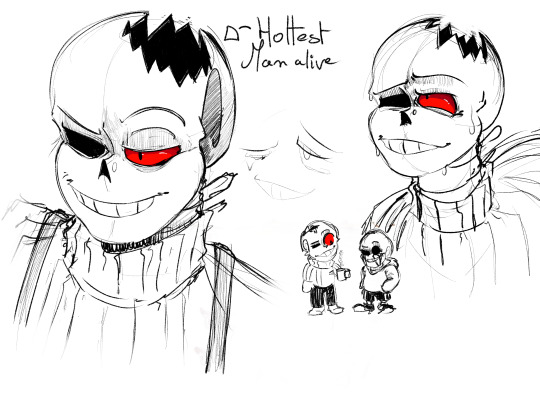
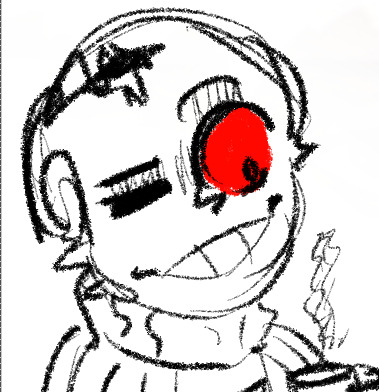
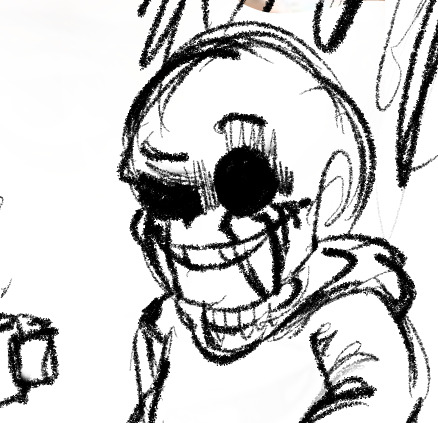
20 notes
·
View notes
Text
Ý Nghĩa Số 6 Trong Biểu Đồ Ngày Sinh Xuất Hiện 1 2 3 4 Lần

Con số 6 trong biểu đồ sinh là một phần của trục trí tuệ 3-6-9, đóng vai trò trung tâm và mang ý nghĩa tích cực, sáng tạo.
Tuy nhiên, sự phát triển của số 6 trong biểu đồ ngày sinh có hai hướng khác nhau. Khi nhận được sự yêu thương và che chở, người sở hữu số 6 sẽ khai thác hết tiềm năng và sự sáng tạo bên trong họ. Tuy nhiên, nếu gặp tâm trạng tiêu cực và mệt mỏi, khả năng sáng tạo cũng sẽ bị ảnh hưởng.
Vì vậy, cách sống của người sở hữu số 6 sẽ quyết định cuộc sống của họ. Để biết thêm thông tin chi tiết, hãy truy cập vào bài viết https://tracuuthansohoc.net/so-6-trong-bieu-do-ngay-sinh.html.
0 notes
Text
Happy New Year~ May 2024 be kind to you
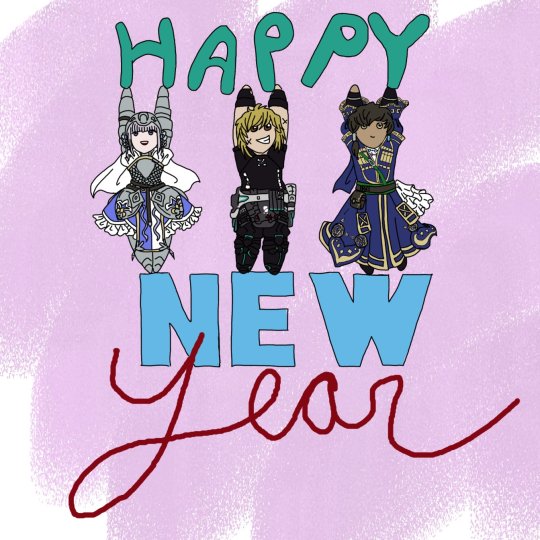
#star ocean#starocean#star ocean the divine force#laeticia aucerius#スターオーシャン6#albaird bergholm#so6#raymond lawrence#new year#happy new year
3 notes
·
View notes
Text
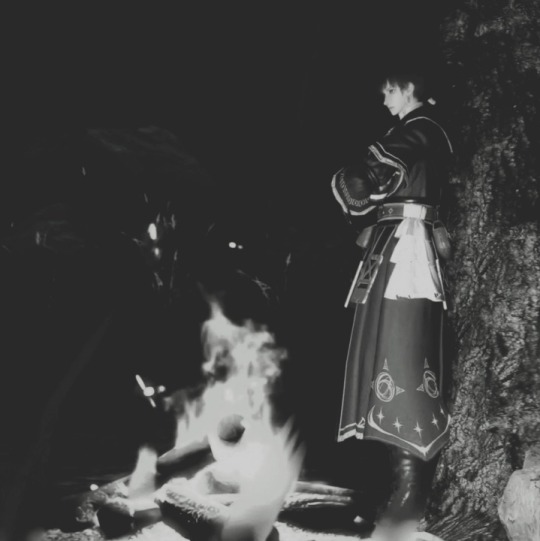

#Star Ocean 6#star ocean the divine force#SO6#Albaird#my things#idk#this game deserves more love and attention
20 notes
·
View notes
Text
Thần Số Học Số 6: Con Số Chủ Đạo Của Tình Yêu Và Gia Đình
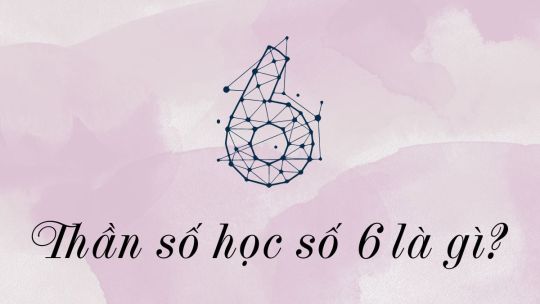
1. Số 6 trong thần số học
Số 6 trong thần số học được biết đến như là người nuôi dưỡng, mang niềm vui cho mọi người trong mọi tình huống. Người khác tìm đến số 6 khi gặp khó khăn vì biết rằng nó sẽ lắng nghe và đưa ra lời khuyên.
2. Số 6 - Số mẫu tử
Số 6 là biểu tượng của sự quan tâm, hy sinh và che chở cho người khác. Nó có thể làm giảm khoảng cách trong các mối quan hệ.
3. Số 6 - Ánh sáng và thân thiện
Thần số học số 6 mang lại ánh sáng cho người xung quanh và làm cho họ cảm thấy an toàn. Nó được coi là số thân thiện nhất trong các số. Số 6 ưu tiên nhu cầu của người khác hơn nhu cầu của chính mình, mà không ai hiểu được lý do tại sao.
Để tìm hiểu về thần số học số 6, vui lòng đọc tại bài viết: https://tracuuthansohoc.com.vn/than-so-hoc-so-6.html
0 notes
Text
Star Ocean 6
I've been really enjoying this game so far! Especially after 5, it feels like Tri-Ace has finally figured out what they want to do with it again! I will admit though that I much prefer how symbology worked in the old games, but I'm not that far in so maybe I'm pre judging on that.
0 notes